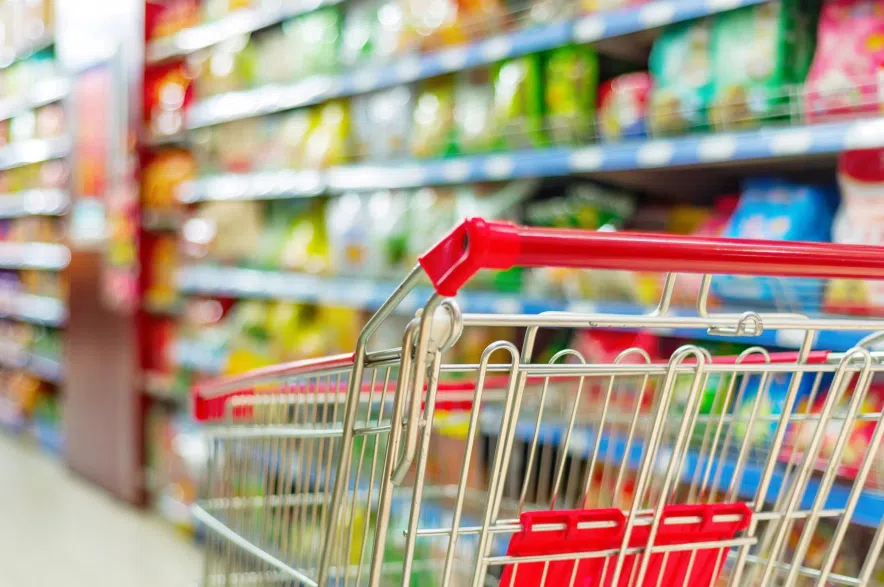Sylvain Charlebois, a food distribution and policy professor at Dalhousie University Agri-Food Analytics Lab, spoke with The Evan Bray Show guest host Murray Wood on Friday about the current state of U.S.-Canada relations, U.S. President Donald Trump’s proposed tariffs, and the impacts of a cross-border trade fight for Saskatchewan.
Read more:
- Trade war fallout: Prepare for grocery price hikes, business analyst says
- Premier Scott Moe travelling to Washington D.C. to argue against tariffs
Listen to Sylvain Charlebois on The Evan Bray Show:
The following transcript has been edited for length and clarity.
Wood: You said recently Trump’s tariffs are about redefining the global trade order in a way he believes benefits the U.S. by boosting domestic industries, gaining leverage in negotiations, and appealing to his political base. Can you break that down for us?
Charlebois: Trump doesn’t believe in multilateralism at all. In fact, he penned an op-ed back in September 1987, almost 40 years ago, stating that multilateralism and trades were a bad deal for America. So this is not new. Multilateralism has been good for Canada and that’s really where I think there’s starting to be a complete disconnect between what we’re looking for and what the U.S. is now looking for.
Wood: If counter-tariffs don’t matter, what should Canada do?
Charlebois: I’m not necessarily convinced Trump is actually going to do implement tariffs. I’m pretty positive that Trump will never do it on food and agricultural commodities, because within days American consumers would see higher prices at the grocery store. If you want to become a highly unpopular president you apply tariffs on food, so that’s going to be a problem for him domestically.
I do see why he’s weaponizing tariffs — it’s really about recapitalizing America and getting manufacturing jobs back. And, frankly, this is something we need as Canadians. We need more processing in Canada.
Wood: Are Canadians going to be okay with paying more to subsidize a homegrown industry?
Charlebois: Saskatchewan is the largest mustard seed exporter in the world, and we buy all of that mustard back in a bottle at 20 times the price. I think a lot of people still accept that.
The reality is that we’re too dependent on the U.S. In agri-food in 2020, when the new deal was ratified with the U.S. and Mexico, 52 per cent of our agri-food trades went to the U.S. We’re up to 70 per cent now.
The US-Mexico-Canadian deal was incredibly good for the agri-food sector. We have a trade surplus of $13 billion because we buy some food back from them. So the good news is that we’re selling more and the bad news is that we’re selling more and we haven’t diversified.
Look at Europe — we’re buying more from them than we’re selling to them, and they’re 500 million consumers. We’re only 41 million. There’s something wrong. Our focus is not strategic at all.
In Mexico this week, what we talked about was building a stronger agri-food corridor between Canada and Mexico. Mexico is buying pork, wheat, and corn for the U.S. What do we grow in Canada? Pork, wheat, and corn. We’ve never taken advantage of that. We should look at Mexico as a really great opportunity for farmers and our companies.
Wood: Bill Probst of APAS said today if the tariffs go ahead farmers will be getting less money. Traditionally, we heard that it’s the consumer who pays the tariffs. Do you agree that Saskatchewan producers would be getting hit both ways in a situation like this?
Charlebois: I agree with APAS on this. I suspect that farmers will take the hit, sell, and become less competitive. What’s going on in Ottawa right now is good, getting everyone together to talk about trading with other nations and interprovincial barriers.
Interprovincial barriers have actually hurt many regions, mostly the Atlantic and the prairies. And if we are to grow our economy, we need to tackle that problem. If we’re serious about creating a free-flowing market in Canada, we can’t do it without addressing the big elephant in the room: supply management.
Wood: What do you think about boycotting American products?
Charlebois: We need to respect people’s decisions, and if they want to boycott America and American products from the grocery store, that’s their prerogative.
What I really find interesting with the buy Canadian movement is that people are finally looking at where their food is coming from and if people are educating themselves that’s absolutely a good thing.
Wood: What about supply management and provincial boards in Canada?
Charlebois: I think it’s a huge problem, especially for the prairies. Supply management has become such a political issue, and politicians don’t want to touch it. For 25 years, I have been explained to MPs how supply management works and how this can help the country grow in terms of its agri-food economy and as soon as I start explaining how supply measures work, they just walk away, which is why we still have these barriers.
The Canadian government needs to address provincial boards and harmonize the quota allocation system federally, because right now quotas are issued provincially.
If they don’t do that we will continue to see barriers preventing provinces from dealing with each other.
Read more:
- Trade war fallout: Prepare for grocery price hikes, business analyst says
- Premier Scott Moe travelling to Washington D.C. to argue against tariffs











